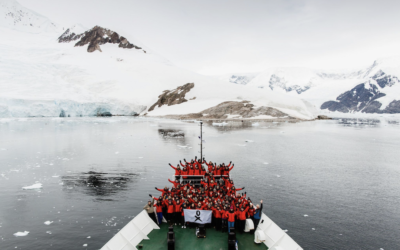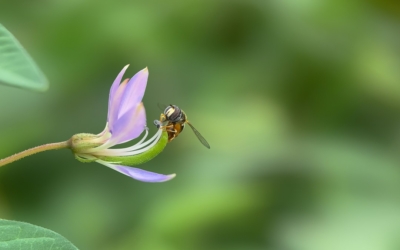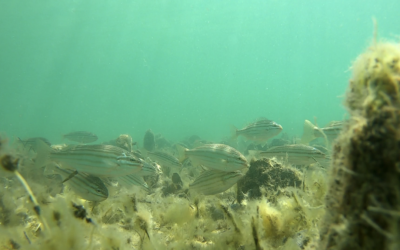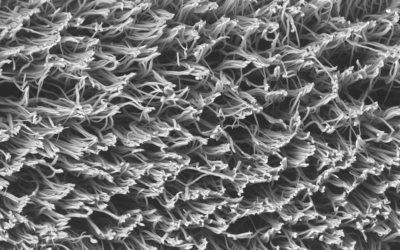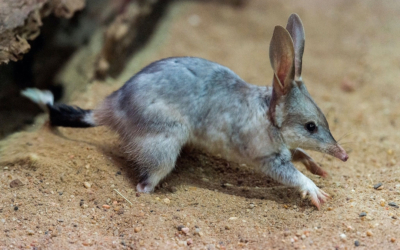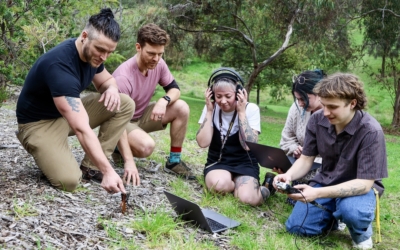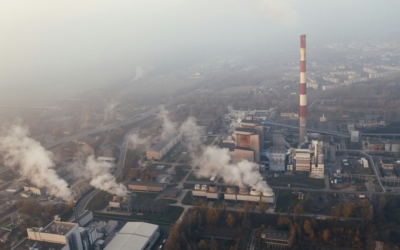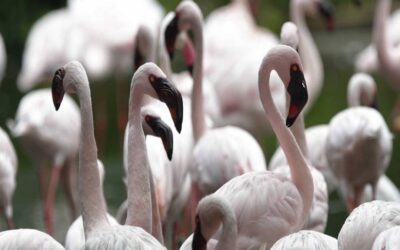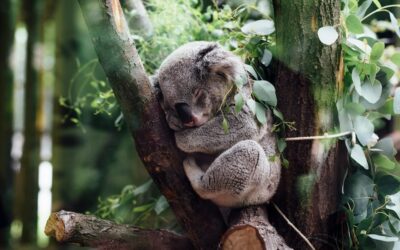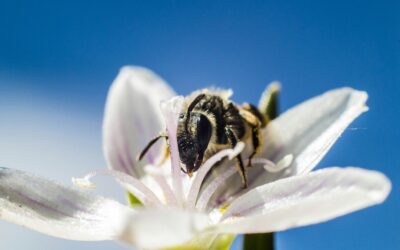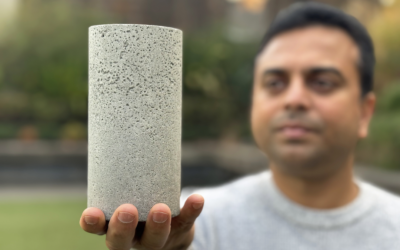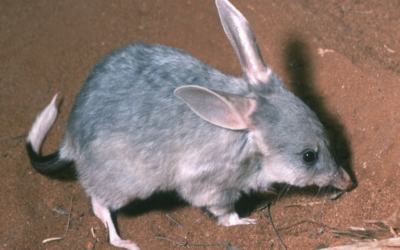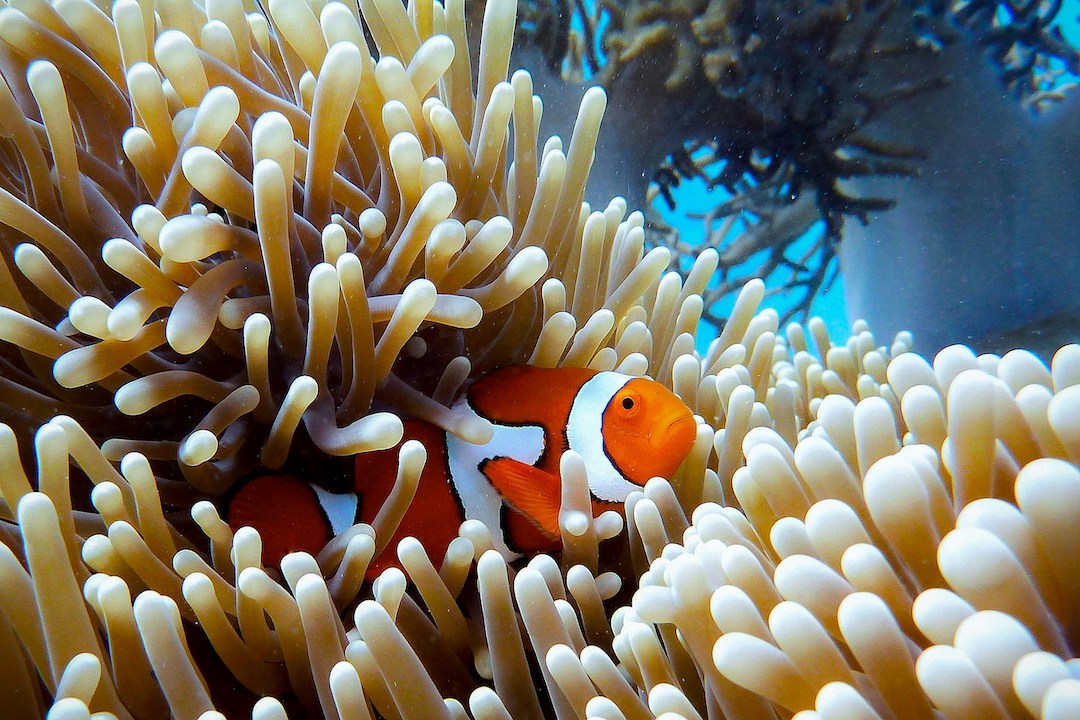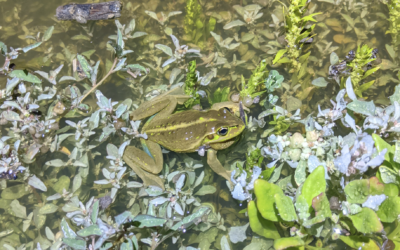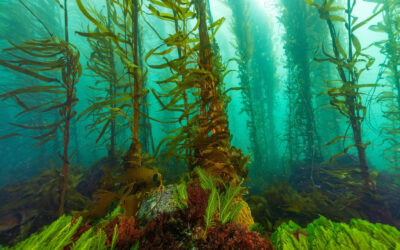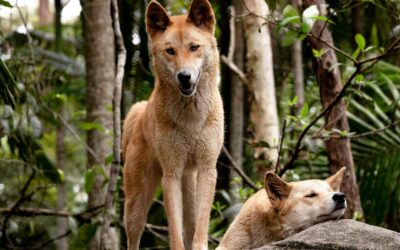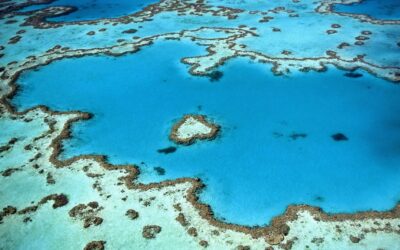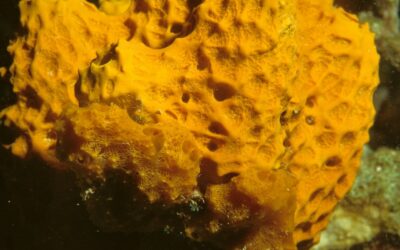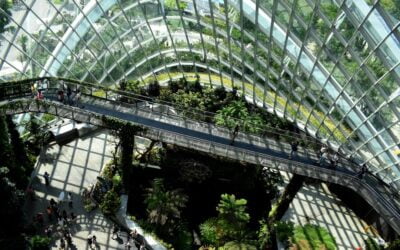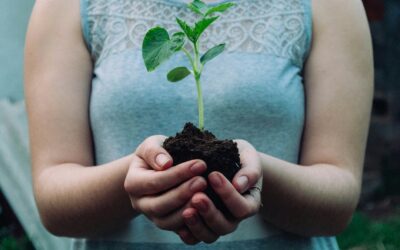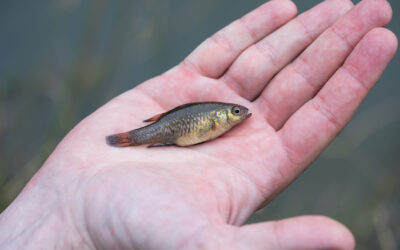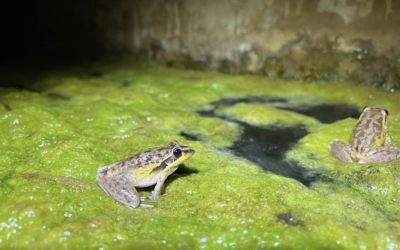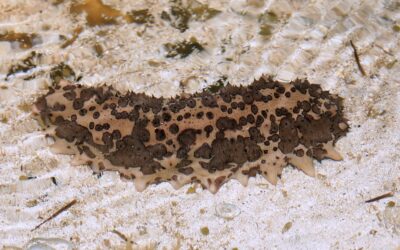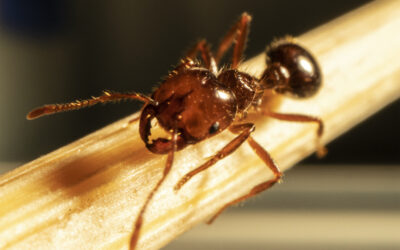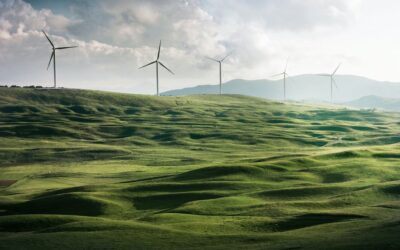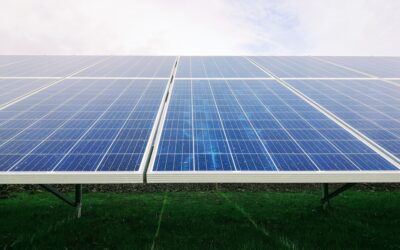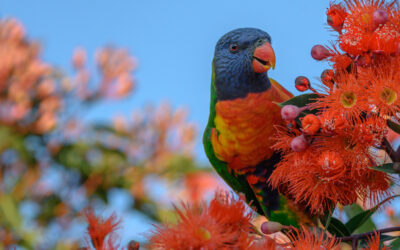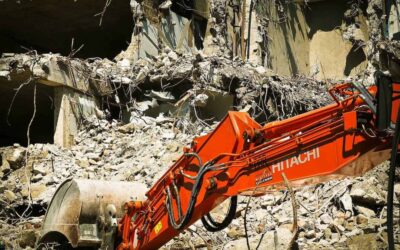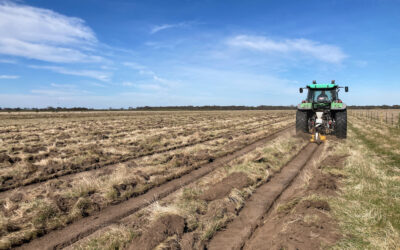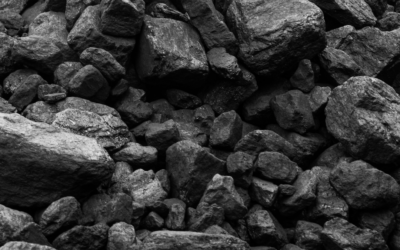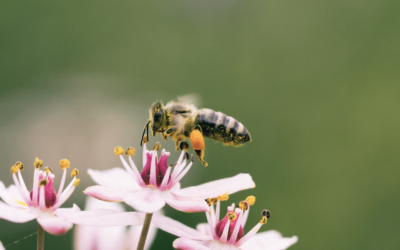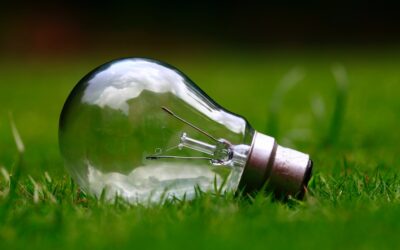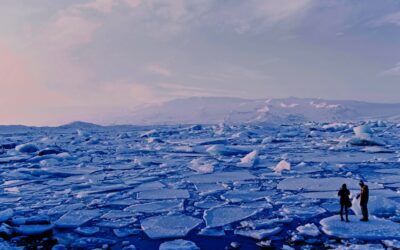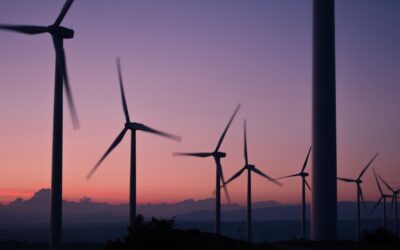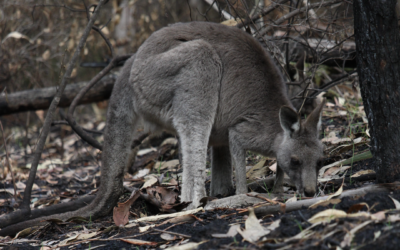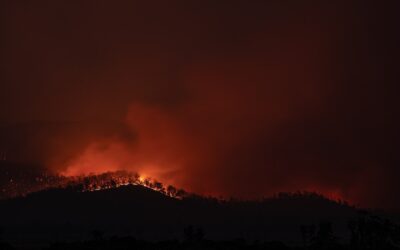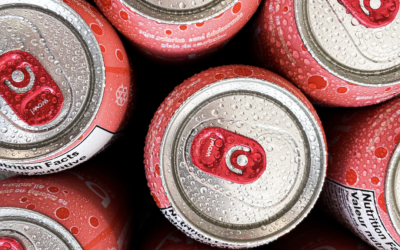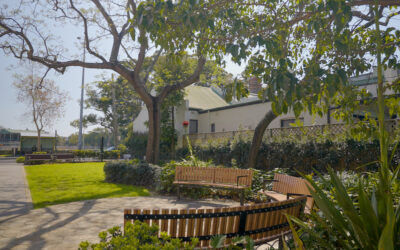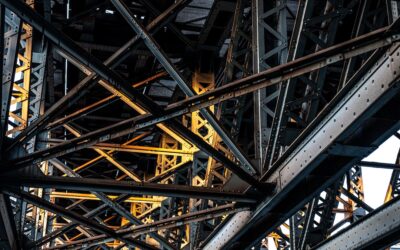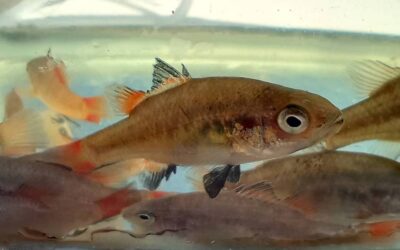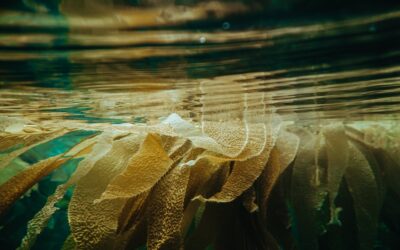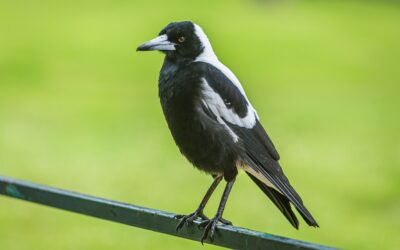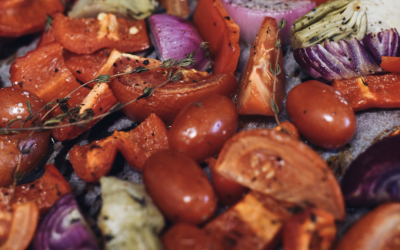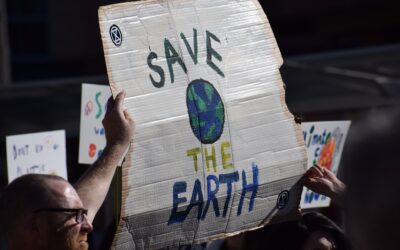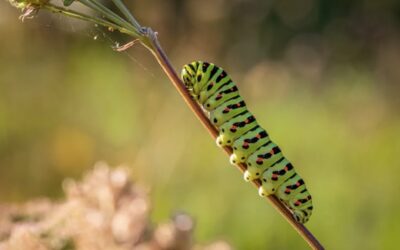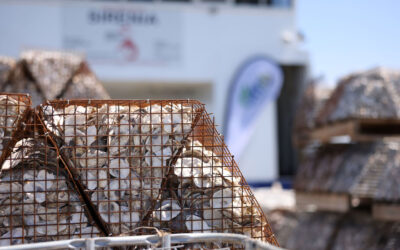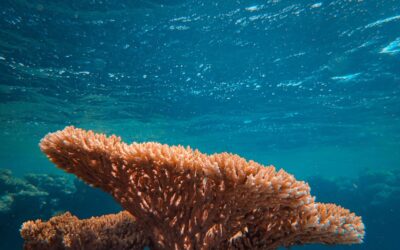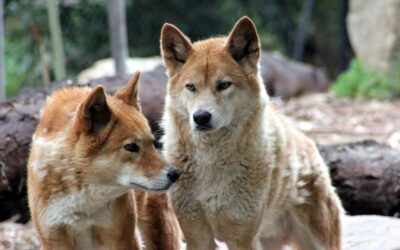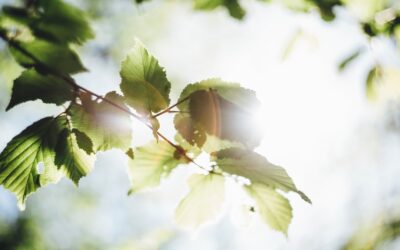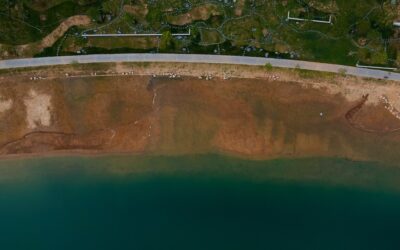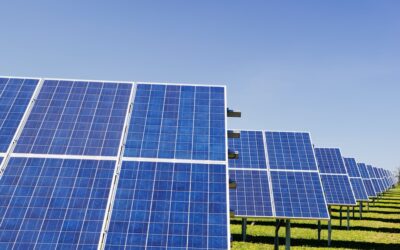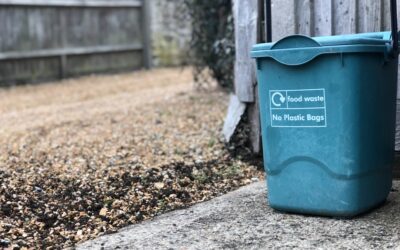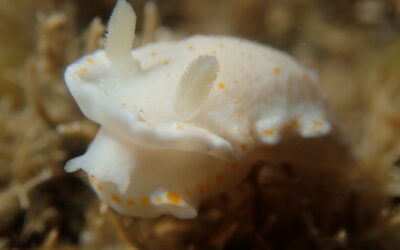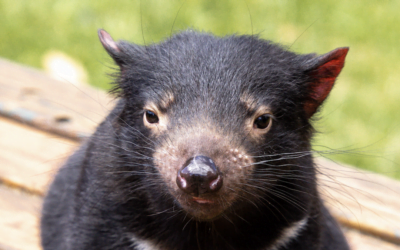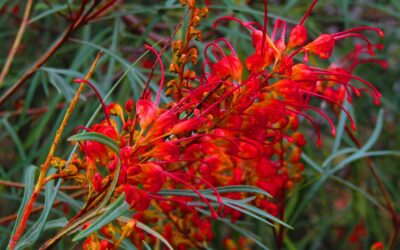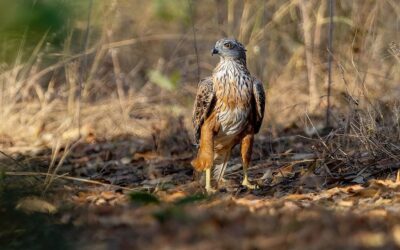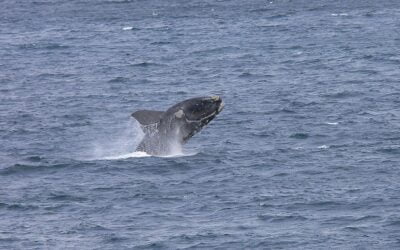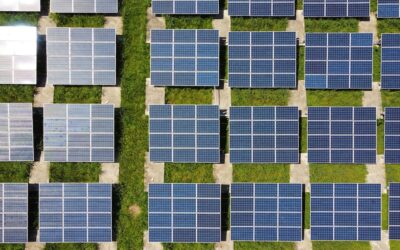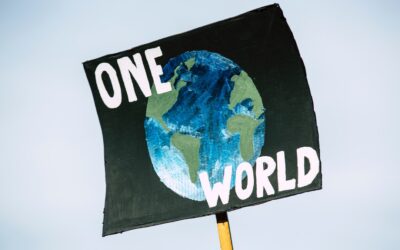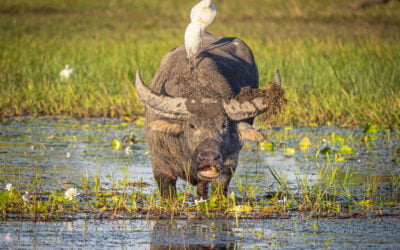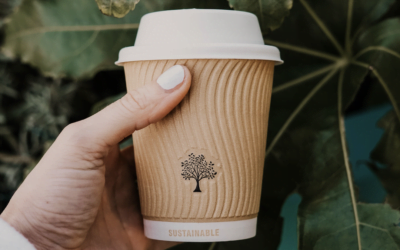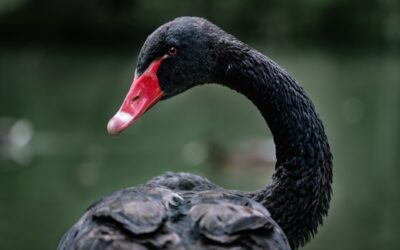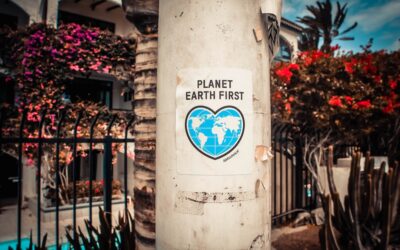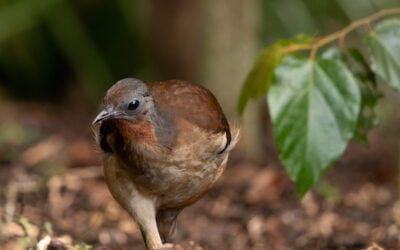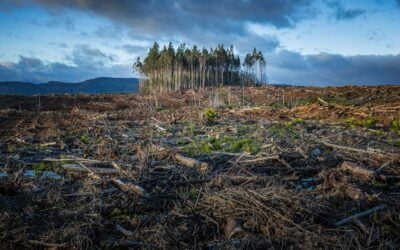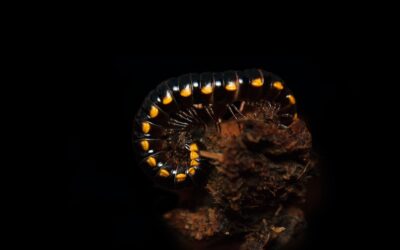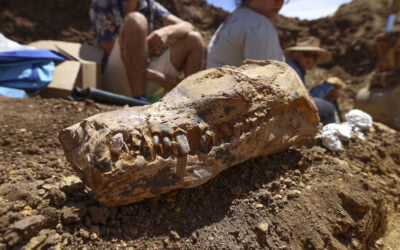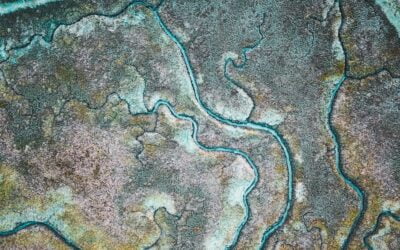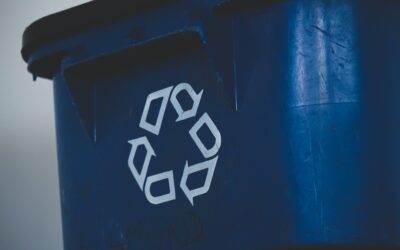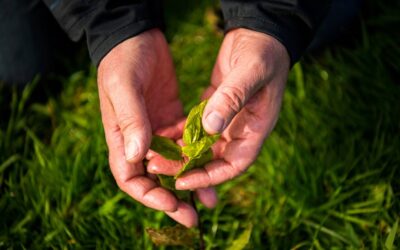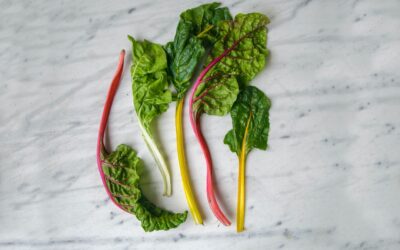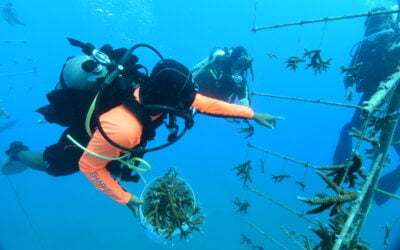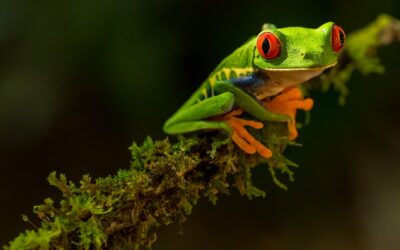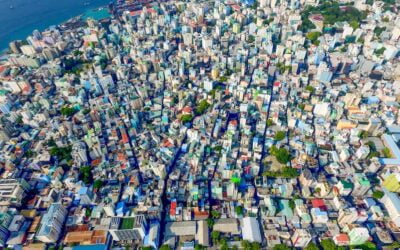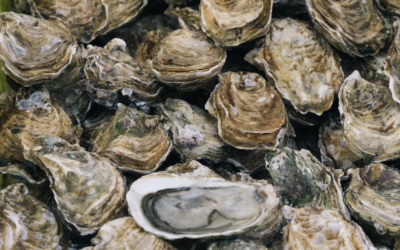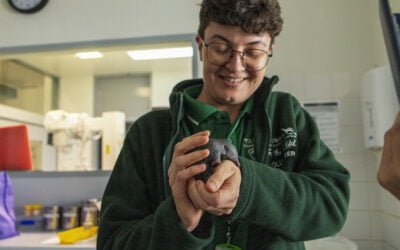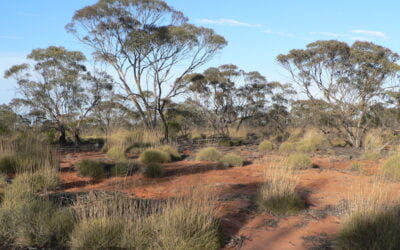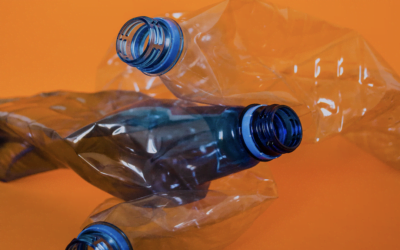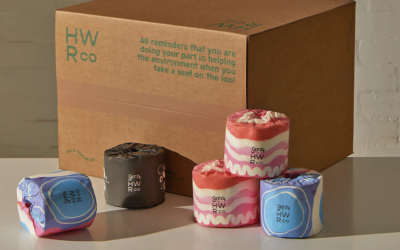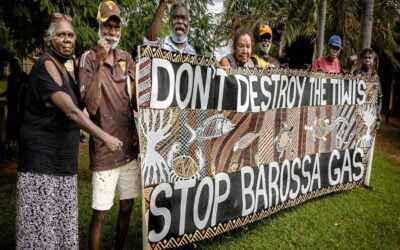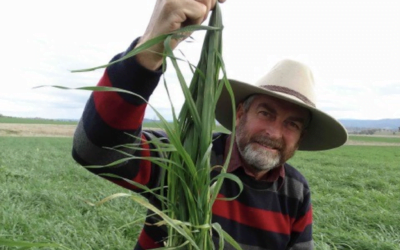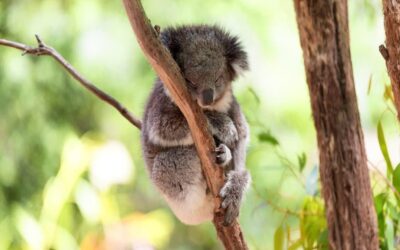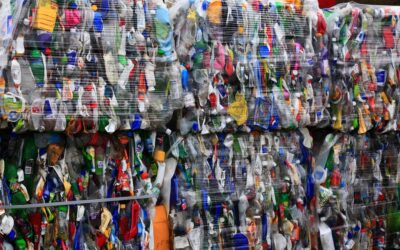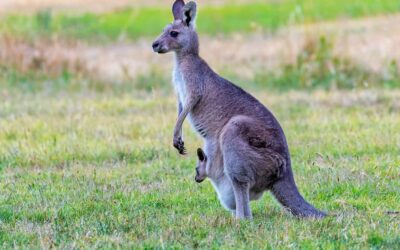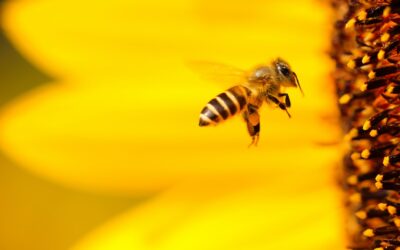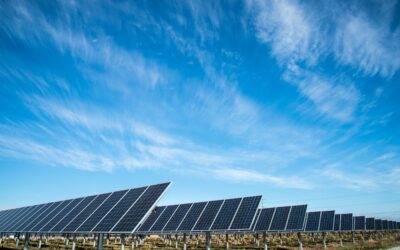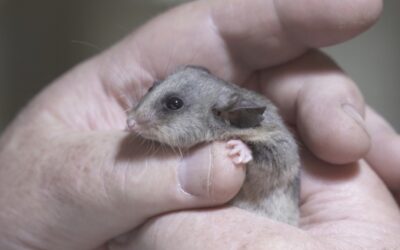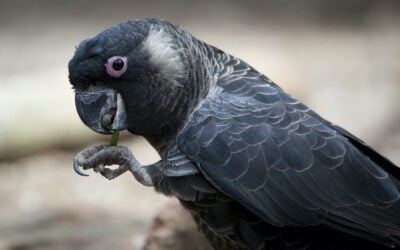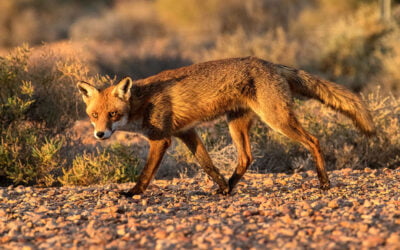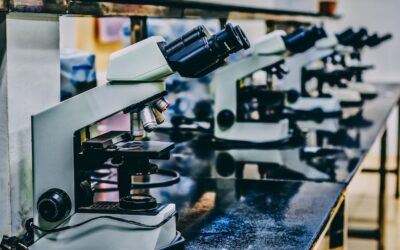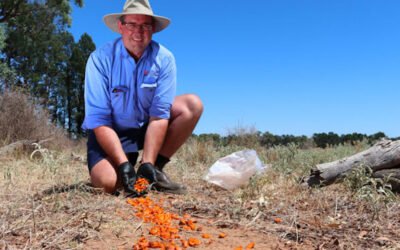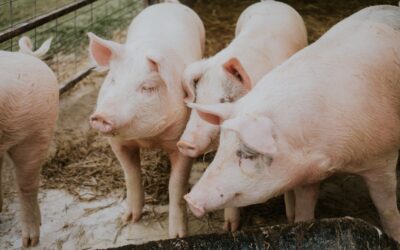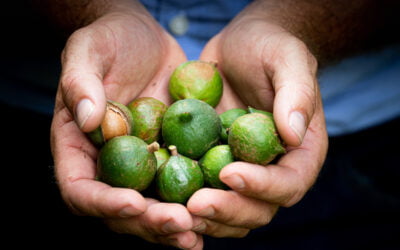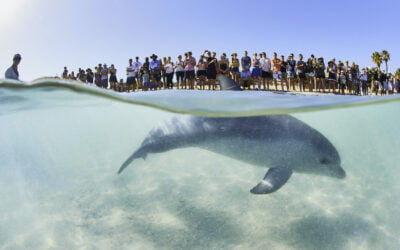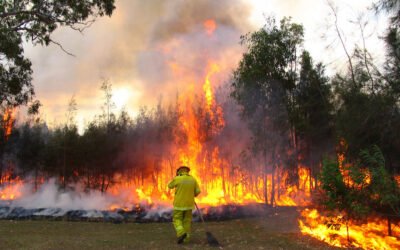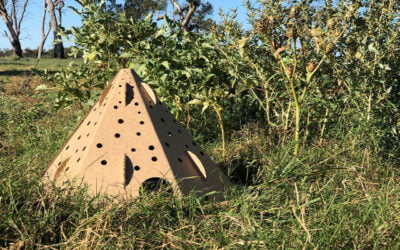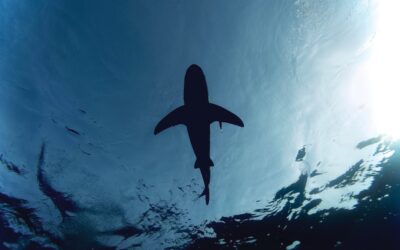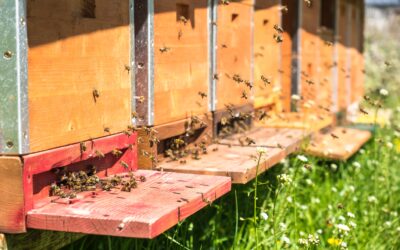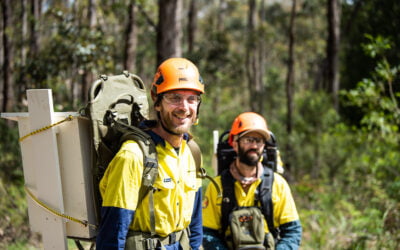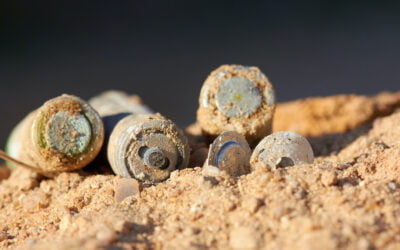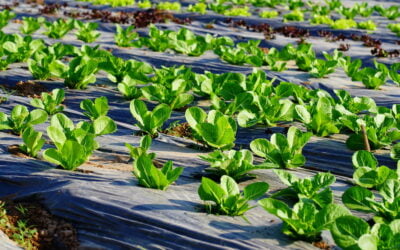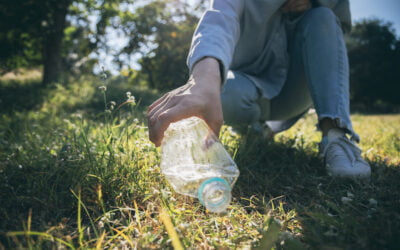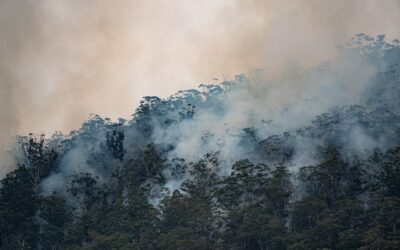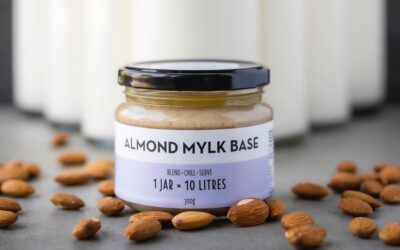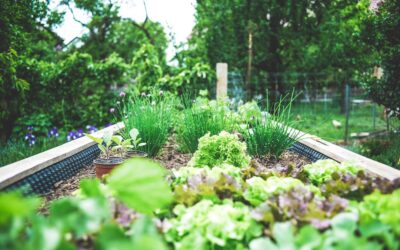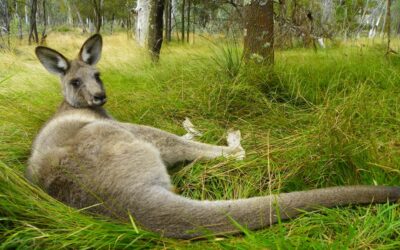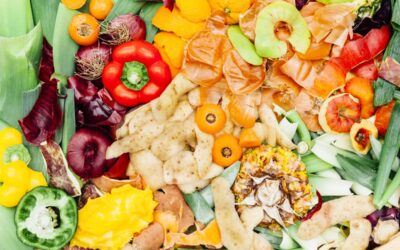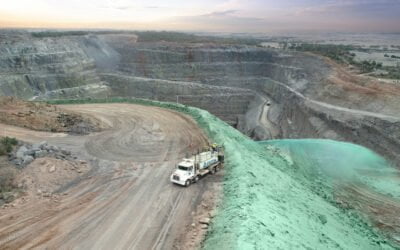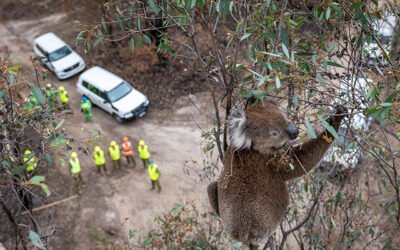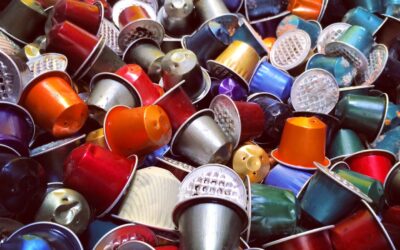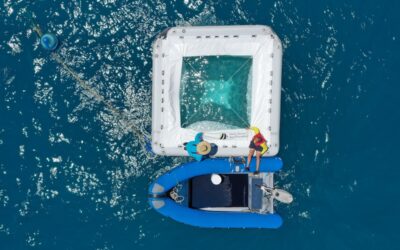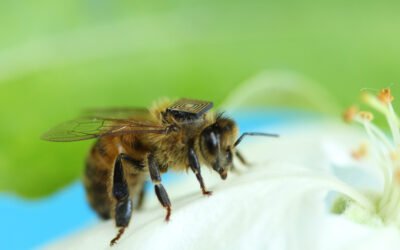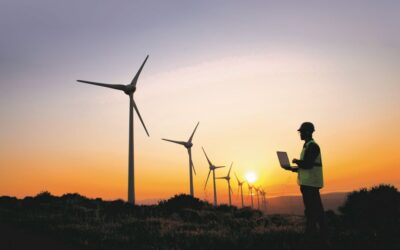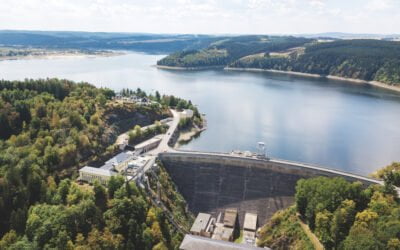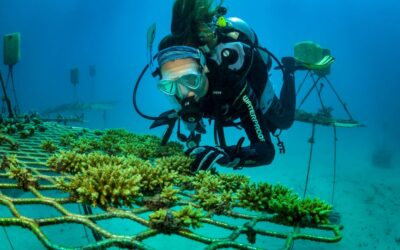Environment
Our writers investigate the latest movements in Australia’s environmental sector, covering topics such as climate change mitigation and renewable energy.
Environment.
Our writers investigate the latest movements in Australia’s environmental sector, covering topics such as climate change mitigation and renewable energy.
The future of bioplastics
Are bioplastics the solution to our single-use plastics crisis? Or are they riddled with their own problems? We dive in to find out.
New breakthrough made in sustainable plastics industry
Through the collaboration of EcoPHA and Terra Sol, this plastics-free solution may be a breakthrough in the sustainable plastics industry.
The female STEMM leaders travelling to Antarctica
Female and non-binary STEMM leaders are setting off for Antarctica to study the impacts of global sustainability issues and develop new skills.
Using virtual reality to study insect behaviour
A new study led by Flinders University has used virtual reality to track the behavioural patterns of insects, determining how trends are impacted by environments.
Protecting shellfish reefs for marine biodiversity
A study of shellfish reefs has found that developing new methods of research and conservation could protect native marine species.
Nanofibres to support the Northern Territory
Researchers are using nanofibers to improve health and environmental outcomes in the Northern Territory, with amazing results.
Why Australia should prioritise green steel
Australia has a vital role to play in decarbonising steel production and encouraging the uptake of green steel instead.
New diet for yellowtail kingfish to preserve wild stocks
Australian aquaculture operators are seeking more sustainable ways to feed yellowtail kingfish for improved commercial production of the species.
Personality traits in greylag geese impact breeding success
A new study has found that similarity in personality traits between greylag geese pairs leads to greater breeding success.
A dream to see the bilby at the Olympics
Initiatives like Save the Bilby in Charleville are helping to bring this iconic Aussie animal back from the brink of extinction, and possibly to the face of the Olympics.
Storylines, business, and climate risks
Research suggests that storylines allow businesses to communicate climate risks by combining science with accounting and finance.
What underground acoustics reveal about soil health
Experts are using underground acoustics to measure levels of soil health and biodiversity in a new study from Flinders University.
Experts concerned as global temperatures exceed 1.5°C warming
Experts have revealed that global temperatures have exceeded 1.5°C warming for a full year, with dangerous consequences if we don’t act now.
Light pollution from Sydney turns night into day
As 24 new infrastructure projects are scheduled for 2025, light pollution from Sydney remains a significant issue. Light...
Counting flamingo populations using AI
Scientists from UNSW have discovered a way to use machine learning to count flamingo populations in the salt pans of Botswana.
How to reduce plastic use this World Refill Day
World Refill Day falls on the 16 June and it’s all about reducing Australia’s single-use plastic waste in a few simple steps.
Record highs for Australia’s endangered species
Research has shown that the number of endangered species in Australia has reached record highs in the last two years, and many are concerned.
How AI is revolutionising climate action in the fast fashion industry
A new study suggests ways that global retailers like H&M and Nike can use AI to reduce emissions and improve energy efficiency.
Why you should be buzzing for World Bee Day
On 20 May, Aussies are encouraged to support our honey bees as vital parts of the ecosystem and world-class pollinators.
Is low-carbon concrete the future of construction?
Experts have developed a low-carbon concrete which recycles double the amount of coal ash compared to current initiatives.
Introducing bilbies back into mild climate zones
Experts have found that endangered bilbies could be reintroduced to the temperate climate zones they inhabited 100 years ago.
Burning in the Great Barrier Reef
According to new research, the Great Barrier Reef is experiencing heat damage comparable to the Black Summer Bushfires.
Turning blister packs into fencing
Discover the project turning used blister packs into sustainable fencing in order to reduce plastic waste in Australia.
Funding for Australian renewable energy projects
ARENA have announced two rounds of funding for Australian renewable energy projects aimed at reducing global emissions.
Saving Australia’s southern bell frogs using new collection methods
A team led by Flinders University have developed a new method of frog collection to save Southern Bell frogs, and possibly other amphibians.
The Great Southern Reef is under attack from sea urchins
Sea urchins moving south due to global warming are devouring ancient kelp forests in the Great Southern Reef with dangerous impacts.
How urine could assist in dingo management plans
Researchers have discovered that dingo urine can help with future species management strategies and signal status to other canines.
The Great Barrier Reef: A jewel under threat
The Great Barrier Reef is under threat from global sea temperature rises and pollution, leaving experts concerned about its future.
Sea sponges reveal global temperature changes
Scientists analysing sea sponges in the Caribbean have discovered that the ocean may be warmer than currently anticipated.
Reducing Carbon Emissions through Sustainable practices
Explore innovative strategies for reducing carbon emissions through sustainable practices and technologies, including bioplastics and water recycling.
Is water recycling the key to cooling Sydney?
A new project will attempt to determine whether water recycling can solve urban heat and sustainability challenges in Sydney’s west.
How scientists are saving the southern pygmy perch
Scientists have partnered with local communities to reintroduce the southern pygmy perch to the Murray-Darling Basin, with great success.
FrogID reaches an important research milestone
FrogID, the citizen science app, has recorded one million frogs around Australia! This huge database will inform conservation efforts and more.
Why illegal fishing of sea cucumbers is damaging our oceans
Experts are concerned that the continued overfishing of sea cucumbers in northern Australia could impact marine biodiversity.
Fire ants caught red-handed ‘rafting’
Red imported fire ants have been spotted forming rafts to travel along the flood waters in Queensland, and experts are concerned.
Will green hydrogen replace diesel fuel?
In the not-to-distant future, green hydrogen may replace diesel fuel and nitrogen-based fertilisers – and it’s completely emission-free.
Energy support for low-income households in NSW
The Federal and NSW state governments will contribute $200 million towards energy upgrades in social and low-income households.
Why you should count your chickens (and all backyard birds)
2023 marked the tenth annual Aussie Backyard Bird Count, highlighting the importance of citizen science and the value of working together.
Using graphene to recycle concrete
A new study has found that combining concrete with a small amount of graphene could increase recyclability and reduce global emissions.
Planting trees to reduce Australia’s carbon emissions
350,000 trees have been planted on a farm in the Gippsland Plains as part of a larger reforestation effort run by Nestle and partners.
Coal waste to be dumped in the Great Artesian Basin
Glencore has proposed a plan to deposit 110,000 tonnes of coal waste into the Great Artesian Basin, and farmers are concerned.
What bees can tell us about antimicrobial resistance in humans
Scientists from Macquarie University have discovered that honey bees can reveal how antimicrobial resistance spreads across the country.
Unlocking the potential of the battery industry
A recent report has revealed that developing Australia’s battery industry has serious export potential as a source of green energy.
Renewable hydrogen is the key to a greener future
A new report has found that introducing renewable hydrogen into existing gas infrastructure could lower Australia’s carbon emissions.
Why we need to stop the rising rate of ocean warming
A new study has determined that ocean warming is accelerating at different rates across the planet, impacting marine ecosystems.
The possibilities are endless with green hydrogen
Introducing green hydrogen into production and exports could help Australia to reduce our carbon emissions while making billions.
Do bushfires damage long-term biodiversity in Australia?
A new study examines the impact of high intensity bushfires on long-term biodiversity, and how response teams can adapt their practices.
How insurance could impact you this bushfire season
With experts warning of another devastating bushfire season, it’s important to understand the home insurance loopholes that could impact you.
An assessment of Australia’s aluminium industry
A report into the aluminium industry has revealed the strengths and weaknesses in Australia’s recycling practices, and how we can improve.
A tiny project with a big impact | the power of pocket parks
Pocket parks are a great way to increase green space in urban areas, encouraging environmental and social wellbeing.
Australia’s biggest ecological restoration event is back
This year, the Society for Ecological Restoration will be meeting in Darwin to discuss ways to protect natural habitats and wildlife.
How the steel industry is supporting sustainability
The Australian steel industry is making significant steps towards carbon emissions reductions, promoting a more sustainable future.
A fin-tastic project to protect NSW fish populations
A new collaborative project seeks to restore populations of Southern Pygmy Perch in NSW as this endangered species continues to struggle.
Seeking kelp: on the power of seaweed
Scientists from Victoria University are undertaking studies on the power of seaweed, and its use in a range of products including fertiliser, cosmetics, food and more.
Please explain: Why do magpies swoop?
Dr Ben Ashton, a behavioural ecologist from Macquarie Uni, explains the reasons behind why magpies swoop – and sometimes target particular people.
How Waste Ninja is bringing an end to food waste
Waste Ninja is the Aussie company helping restaurants and other businesses to reduce their food waste one day at a time.
The ancient Australian species at risk of extinction
Maugean skates are a unique animal only found of the coast of Tasmania, and they could be facing extinction if we don’t act soon.
These hungry hungry caterpillars are eating plastic waste
A recent study from Macquarie University has revealed that caterpillars could be the answer to reducing the impact of single-use plastics.
The charity leading the charge for shellfish reef restoration
Australia’s biggest shellfish reef restoration project is increasing biodiversity and protecting precious ecosystems in Moreton Bay.
How coral disease is threatening our oceans
A recent study has revealed that coral disease is spreading at an alarming rate. Without immediate action, whole reefs could be wiped out.
Discovering the truth behind dingo DNA
New research has revealed that wild dingoes have less dog ancestry than we thought, leading to questions around conservation and protection.
How biogas is fueling our future
Engineers have discovered a way to turn organic waste from shopping malls, offices and schools into biogas for renewable energy.
Celebrating World Environment Day
With World Environment Day just around the corner, we’ve put together a list of ways to participate in this important environmental movement.
Could artificial boulders protect our marine life?
Man-made Living Boulders have been dropped into Sydney Harbour in an attempt to increase marine biodiversity and combat coastal degradation.
Surprising solar panel solutions
Researchers have accidentally discovered a new way to recycle solar panels, a revelation that has several environmental benefits.
Paving the road for a greener future
A new initiative turning single-use coffee cups into roads could help to permanently reduce Australia’s waste and protect the environment.
Why composting is vital for a healthy planet
Discover the benefits of composting and why it’s essential for soil and plant health this International Compost Awareness Week.
Saving Phillip Island’s endangered sea slugs
Victorian communities are banding together to protect the critically endangered animals that inhabit Phillip Island, including sea slugs.
How humans are hurting Tasmanian devils
According to a recent study, the Tasmanian devil is facing a new risk to its ongoing survival. And it’s down to us to make a difference.
How citizen science could save Australia’s plants
Scientists have discovered that much of Australia’s flora remains unphotographed, which could be putting some species at risk of extinction.
The problem plaguing Red Goshawks
A recent study has revealed that Australia’s Red Goshawk is at risk of extinction, and experts are pushing for greater conservation efforts.
How climate change is impacting our whales
Research has revealed that the migration patterns of Southern Right Whales is changing, and it could be down to climate change.
The long-running Tidy Towns award is back
The Tidy Towns awards will be announced this weekend, celebrating communities that are keeping Australia clean and saving our environment.
The team fighting fossil fuels in court
The Bushfire Survivors for Climate Action are having their day in court to protest the approved expansion of a damaging NSW mine.
Could water buffaloes help fight climate change?
A new study has revealed that controlling feral water buffaloes could significantly reduce carbon emissions and help protect our environment.
Offshore wind could be the next global energy
Australia has joined the Global Offshore Wind Alliance in the hopes of generating new wind-powered energy and reducing fossil fuels.
Bioplastics and the future of packaging
Are bioplastics the environmental solution we’ve been waiting for? Or riddled with their own problems? We dive in to find out.
The biggest risk to Australia’s Black Swans
Research has revealed the genetic differences of the Australian Black Swan which leaves them open to extinction due to disease.
Five ways EARTHDAY.ORG is investing in our planet
For anyone wondering how to create environmental change, EARTHDAY.ORG has you covered with their list of the best ways to make a difference.
The Albert’s lyrebird is losing its voice
A recent study has shown that the Albert’s lyrebird could be losing its famous voice if more isn’t done to protect their habitat.
How we’re putting the world’s wilderness at risk
A new study has revealed that land clearing and climate change could destroy half of the world’s wilderness areas by 2050.
The magnificent millipede discovery
Bioluminescent millipedes have been discovered for the first time ever in Australia. And it was all thanks to a bushwalker’s happy accident.
Rare dinosaur discovery unearthed in the outback
In outback Queensland, a group of amateur female palaeontologists unearthed a rare 100 million-year-old fossil of an ancient dinosaur.
How to go with the flow: river framework restores health and hope
A river management framework developed at Macquarie University has been recognised in the NSW Parliament’s 2022 Research Impact Showcase.
Q&A with Pip Kiernan, Chair of Clean Up Australia
Clean Up Australia is dedicated to maintaining the wellbeing of our environment, and there are so many amazing ways Aussies can get involved.
Nestle’s environmental action is shaping Australia for the better
Nestle has launched a new initiative to plant 10 million trees in Australia by 2025, and it’s already having a positive environmental impact.
Vegetable waste is the solution to our single-use plastic crisis
Scientists have discovered that vegetable waste can be turned into sustainable packaging, putting an end to single-use products.
Reef Restoration Foundation shares its coral nursery
Australia’s first offshore coral nursery could mean the beginning of a bigger restoration project for the Great Barrier Reef.
Australian frog species are under threat
Research shows that many of Australia’s frog species are facing extinction. This FrogID Week, do your part to help save them.
The damaging effects of population growth
With the population set to hit 8 billion people on the 15th November, scientists are worried about the future of our planet.
Help save the Sydney Rock Oysters from extinction
Sydney Rock Oysters are under threat, and NSW farmers are urging restaurants and communities alike to protect these rare delicacies.
‘Smudge’ the puggle recovers at Taronga Wildlife Hospital
Many vets at the Taronga Wildlife Hospital have been dealing with a variety of animals who have been injured, including a newborn echidna puggle.
Saving our soil | The need for greater soil conservation
A new study reveals the need to invest in stronger soil conservation to ensure greater biodiversity and a stronger ecosystem.
The amazing power of wax worm saliva
New research has found that wax worm saliva can decompose plastic, giving scientists hope for better sustainability practices.
Eco-conscious toilet paper with flair? That’s how we roll
Offering eco-friendly and sustainable alternatives to supermarket brands, How We Roll Co is taking the toilet paper industry by storm.
The Munupi clan wins battle against Santos
The Federal Court of Australia has dismissed Santos’ s attempt to try and drill holes in the sea north of the Tiwi Islands.
Heavy Helpers: 3 Finalists of the 2022 Bob Hawke Landcare Award
Introducing Dr Mary Retallack, Mr Bruce Maynard, and Mr Geoff Bassett as emerging Australian leaders in landcare projects.
It’s time we support the Koala Protection Act
“The fate of the Koala rests in your hands” – Australian Koala Foundation calls for support to the Koala Protection Act.
Australia’s new solution to global plastic waste
Australia’s new plastics innovation hub is looking to put an end to plastic waste in the Indo-Pacific region.
The lawsuit that’s saving kangaroos
A new lawsuit against a major US sport retail brand is seeking to put an end to the illegal manufacture and sale of kangaroo-based products.
Saving Australian honeybees
A new research project by Macquarie University is hoping to save declining bee populations with an innovative probiotic solution.
Greenwashing in the business world
Companies accused of greenwashing or exaggerating their green credentials will now face scrutiny under a new investigative effort.
How pygmy-possums are being saved from extinction
Pygmy-possums are a critically endangered species, but a new project at Lithgow breeding facility is offering hope for a brighter future.
The Black Cockatoo | Matters of National Environmental Significance
Australia’s black cockatoos are in need of help and thanks to new funding, ground-breaking health and ecological research could help.
Quick foxes and even quicker cats prove no match for the Felixer
Cats and foxes are both introduced in Australia, they have continued to decimate our native wildlife and experts believe the time to act is now.
Citizen science: the future of scientific research
Citizen science is changing the way scientists collect data in Australia, improving the efficiency and accuracy of important programs.
How rabbit biocontrol is saving Australia’s native species
A new report detailing rabbit biocontrol plans has provided hope that this pest population can finally be controlled.
Pork talk
Pork has been an Australian staple for decades, and now the move towards ethical pork production is sending the industry to a whole new level
The future of macadamia farming
Hinkler Park Plantations is the first carbon positive business in the macadamia industry. And it’s all thanks to a few simple changes.
Wild about Shark Bay dolphins
The Shark Bay dolphins have been a part of the longest-running study of wild cetaceans in the Southern Hemisphere, and second in the world.
Climate Action Call as Last 7 Years Break Heat Records
A recent push for climate action in Australia comes as the last seven years were confirmed as the hottest on record.
A sustainable investing revolution for 2022
Sustainable investing is influencing everyday consumer purchase decisions about where they spend their money and it’s intriguing investors.
Flat-pack pods give wildlife a post-bushfire fighting chance of survival
Biodegradable flat-pack pods could be the difference between life and death for small critters after devastating bushfires.
Shark bites: Study explains why sharks bite humans
World-first research testing a ‘shark vision’ model on swimming patterns of humans, and seals, confirms theories why sharks bite humans.
Keeping the Varroa mite off of our Australian honey bees
A new surveillance program has been announced to monitor pest species like the Varroa mite that threaten the Australian honey bee industry.
Greater Glider population recovery efforts
Landcare Victoria and Greening Australia have begun Greater Glider population recovery efforts – to try and save this vulnerable species.
Get fertilised – recycled liquid fertiliser
With new innovations in recycling technology, batteries can now mean recycled liquid fertiliser for the agricultural community.
Removing plastic from the supply-chains
TranspiratiONal is a sprayable and biodegradable emulsion solution developed by the CSIRO to reduce plastic waste in agriculture.
Start-up asking Australians to wrap their head around plastic waste
The world is evolving around us, and the latest innovations are making the world spin faster, however, there’s one bad habit we can’t seem to lose: plastic waste.
A search for ‘super seeds’ to prevent the loss of Australian Alpine forests
Greening Australia and the Minderoo Foundation’s three-year project is helping nature adapt to a changing climate through ‘super seeds’.
Fable Food Co comes to the table
Fable Food Co is changing the way consumers think about plant-based protein, with a secret ingredient of mushrooms
This startup is changing the way Aussies drink milk
Ulu Hye is working towards a range of plant-based milk products that will do wonders for the environment (and your health).
The Aussie Climate Change Coaches: Make your Change
Make Your Change CEO Matt Heath is on a mission to make the world a better place, and his team of coaches will help you get onboard too.
Munch Cupboard – Protecting the planet starts in the pantry
From law to lunchboxes, Ann Bordignon has turned her passion into a plastic-free, planet-saving enterprise called Munch Cupboard.
Before you plant your veggie patch, read this
More than a third of the soil tested in Australian homes had unsafe levels of lead, say researchers from Macquarie University’s VegeSafe.
Scoop a Poop to save our native wildlife (and us!)
Three years and 800 samples later, the Scoop a Poop citizen science project has helped researchers find new ways to save Aussie wildlife.
How to reduce food waste – innovation and investment are key
Wondering how you can reduce food waste? First, you need to understand where it comes from and who the biggest offenders really are.
7 positive outcomes of COVID-19
The pandemic has had undeniable and horrific consequences on the world as we know it, but there are at least 7 positive outcomes of COVID-19.
Mine rehabilitation: turning barren landscapes green again
We investigate the growing importance of mine rehabilitation, speaking to three experts about new technologies bringing land back to life.
Koala care: fast-tracking wildlife treatment in bushfire season
After Australia’s most devastating wildfire season on record, Macquarie University is leading a project to improve wildlife treatment.
Meet the Aussie startup tackling our single-use plastic problem
Aussie startup Zero Co plans to remove 20,000 kilos of plastic from our oceans by changing up the way we consume everyday household products.
Australia’s solar energy sector: key trends for 2021
Karl Brown from Instyle Solar shares the key solar energy trends that will push the industry forward in Australia in 2021.
Green aluminium: the latest in micro-recycling science
A new technique uncovered by the SMaRT Centre at UNSW could see your old coffee pods turned into a game-changing green aluminium.
Coral “sexperts” are saving the Great Barrier Reef
Reef restoration on the Great Barrier Reef will reach ‘kilometre scale’ after upscaling efforts of the Coral IVF technique.
World’s bee population faces its own pandemic
As hard as Covid-19 is on humanity, take a moment to think about the European honey bee and its fight for survival against the varroa mite.
Wind farms: a bunch of hot air?
Anti-wind scaremongering by populist leaders has driven the debate against wind farms for years, but the breeze towards renewables is blowing strong.
Encouraging STEM to fight climate change
Jane Lowney, Head of Engineering and Infrastructure at recruitment firm Robert Walters, explains how encouraging young Australians into STEM careers could accelerate our efforts to mitigate climate change.
Renewables jobs heat up
Renewable energy accounts for more than a fifth of Australia’s electricity – a huge win for the environment and for job-seekers. Here’s why.
A star is spawn – Great Barrier Reef coral spawning
The Great Barrier Reef’s spectacular coral spawning offers ways to help secure its future. We speak to the man behind the movement.


